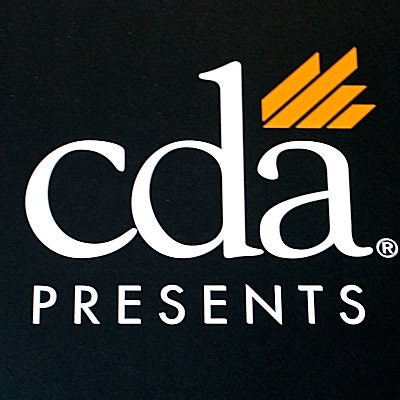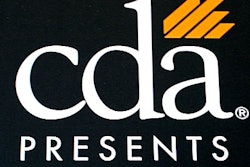
SAN FRANCISCO - Have you been thinking about enrolling in California's dental Medicaid program, Denti-Cal, but don't know how or want to learn more about the program before you do? Denti-Cal expert Nirmala Prabhu, DMD, shared 10 things you need to about Denti-Cal at the California's Dental Association's CDA Presents 2017 meeting on August 24.
For the past 15 years, Dr. Prabhu has helped to train staff as a Denti-Cal consultant for Delta Dental. During her presentation, she outlined the basics of the program, as well as recent changes and how to enroll. Below are her list of 10 things you need to know about Denti-Cal.
1. Enroll in the program
The very first thing she listed, and one of the most important, is that you must enroll in the program before rendering services to Denti-Cal beneficiaries.
"That's the first rule of the program," Dr. Prabhu said.
One of the easiest ways to learn more about enrolling is to attend an in-person or online seminar, she said. Providers can get continuing education credits for attending both seminars and workshops, and more information about both is available on Denti-Cal's website.
2. Familiarize yourself with the provider handbook
The 400-page Medi-Cal Dental Program Provider Handbook has been administered since 1974 and is the go-to resource for all Denti-Cal questions and criteria. It contains the rules and requirements of the program as outlined by the state and is updated periodically.
For providers, one of the most important sections of the handbook is Section 5 - Manual of Criteria and Schedule of Maximum Allowances. This section lists all the procedures, codes, and unique requirements that must be followed. It also lists the maximum allowance for each procedure.
To keep up with changes to the handbook, Denti-Cal issues monthly provider bulletins. The bulletins are available at the top left-hand corner of the Denti-Cal website, but Dr. Prabhu recommended signing up for delivery by email to ensure you don't miss critical information.
3. Print the reason codes
Denti-Cal communicates with providers in two ways. The first is through the provider bulletins. The second is through three- to four-digit adjudication reason codes.
"On a daily basis, we receive about 33,000 claim inquiry forms," Dr. Prabhu said. "That's a lot of documents. If I told my staff to pick up the phone every time, we would never be paid on time. It's physically impossible."
“If you submit the fees as $0, you get paid at $0.”
There are hundreds of reason codes listed in Section 7 of the handbook, and Dr. Prabhu highly recommended printing a copy of the reason codes and keeping it where your billing staff does their work. Sometimes the codes let providers know a claim was approved but that something was wrong, such as if a claim required a quadrant but a tooth number was provided instead. Other times, the codes let providers know why a claim was denied.
When claims are denied, it is often because of an error of omission, such as failure to sign claim forms (stamps don't count as a signature), or an error of submission, such as entering the wrong procedure code. Also, be sure to bill Denti-Cal for what you need or the schedule of maximum allowance (SMA).
"If you submit the fees as $0, you get paid at $0," Dr. Prabhu said. "It does not pay you the schedule of maximum allowance that's listed in the handbook."
4. Keep up-to-date with new changes
Thanks to funds from a new tobacco tax, Denti-Cal is raising provider rates, pending approval from the U.S. Centers for Medicare and Medicaid Services (CMS). Once approved, SMA will not change, but the supplemental payment will increase by 40% for more than 250 codes.
While the change is a big deal for providers, you don't have to do anything until CMS approves the payments, Dr. Prabhu noted. Updates about the increased rates will be included in the monthly bulletins, and the August 2017 bulletin lists the codes that will receive an increase in supplemental payments.
5. Understand the benefit structure
One of the most important aspects of Denti-Cal is understanding patient eligibility. A patient's age and financial standing affect what benefits they are eligible for, with the biggest distinction being between children and adults.
Denti-Cal defines a child as anyone under 21 years of age. Children have the full scope of benefits that are currently listed in the provider handbook.
Meanwhile, adults are defined as persons age 21 and older, and the scope of benefits for adults is different based on what category that person falls into. For instance, benefits for adults are distinguished between federally required adult dental services (known as FRADS) and restored adult dental services (known as RADS), as well as pregnant beneficiaries. The scope of requirements for each category is listed in the provider handbook.
6. Learn the types of documents
Denti-Cal uses several types of documents, including claim forms, claim inquiry forms (CIFs), treatment authorization requests (TARs), resubmission turnaround documents (RTDs), and notice of authorizations (NOAs). It is important to familiarize yourself with the types of documents and when to use them.
For instance, if a claim needs to be re-evaluated, you don't submit a duplicate claim. Instead, you submit a CIF along with any original material.
7. Keep records
When it comes to record keeping, Dr. Prabhu's explanation was simple: "If you do everything you were told to do in dental school, you will be compliant."
8. Properly document radiographs
Radiographs and photographs must list the patient name, date of service, and orientation and also be of diagnostic quality, Dr. Prabhu said. She especially cautioned to ensure you're writing down the radiograph orientation if your software doesn't have it.
9. Double-check documentation
Consult with the handbook to see if a procedure requires prior authorization. If it does, double check to make sure your documentation matches what you see. This is also helpful for claims, for which the wrong information is sometimes provided.
10. Use available resources
Finally, Dr. Prabhu said that Denti-Cal has resources for providers who have additional questions or need further assistance. Denti-Cal's toll-free phone number, 800-423-0507, is available Monday to Friday from 8 a.m. to 5 p.m. Pacific time. Denti-Cal also has a program in which someone will come to your office and give you one-on-one billing assistance.



















